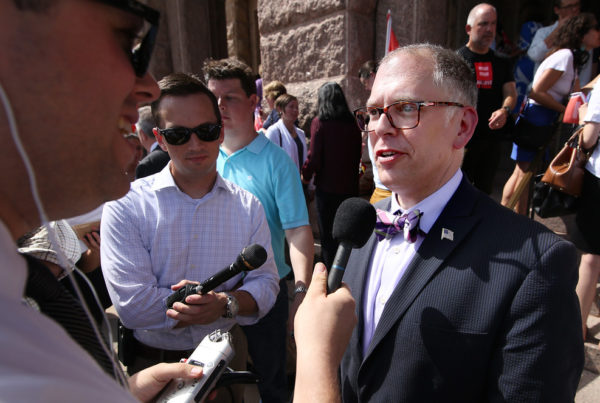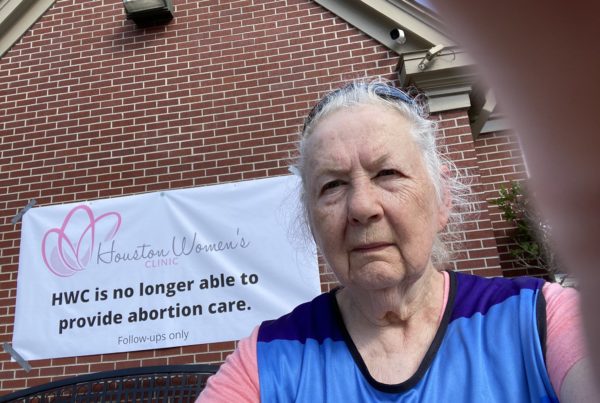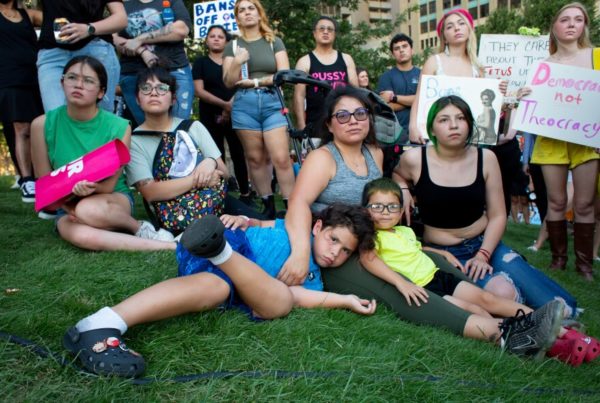Sex education in Texas public schools recently received its first update in more than two decades.
When students return to school this fall, their sex education curriculum will still promote abstinence but will also include information about birth control and sexually transmitted infections. Students will also need written consent from a parent or guardian to take part in sex ed.
Elena Rivera, a health reporter for KERA News who reported on the new curriculum with Kaiser Health News, spoke to Texas Standard about the state’s sex ed update. Listen to the interview above or read the transcript below.
This transcript has been edited lightly for clarity:
Texas Standard: Let’s talk about the changes to Texas’ curriculum on sex education. As I understand it, the state is still focused on an abstinence-first approach.
Elena Rivera: Yes, that is the prevailing education model right now for sex ed in Texas. But the state did update its sex ed curriculum for the first time since the 90s. But the new curriculum includes things like boundaries and contraception. That was a really big win for educators and advocates. Contraception is taught alongside abstinence, but it is taught now to students.
What didn’t make the cut that advocates wanted the curriculum to include?
So, like I said, boundaries is in there, but not consent. And so that was a little bit confusing, because I think a lot of us would think, “Oh, those things go hand in hand.” So, consent is not part of the curriculum. Also not part of the curriculum: anything to do with LGBTQ students, gender or sexuality or identity questions.
Now, I’ve been told that just learning details of how your own body functions when it comes to sexual health has largely been left up to parents with something called an “opt-in policy.” Could you explain what that policy is and how that could end up leaving a lot of students out of the conversation?
Usually, for a lot of things across school districts, parents have an opt-out policy, right? So you get a permission slip. You say, “Hey, I don’t want my kid learning about that subject or this topic.” You sign the permission slip, you send it back to school, they don’t learn about it. That’s been pretty standard for a lot of things, including sex ed in Texas. The thing that’s a little bit different now is there’s an opt-in policy. So if parents and caregivers want their kids to receive this education, they actually have to sign something to say, “Yes, I do want them to receive it.” And if not, the default is that they won’t.
And I think the thing that’s complicated is I can imagine how many emails or permission slips you’re pulling out of a kid’s backpack. One might get lost; that means your kid might not get access to this really important education. In addition, a lot of the advocates I talked to said that this kind of leaves the folks who are most vulnerable in a really precarious position. Because if you are in foster care, if you’re going through housing transitions, if you’re not in a stable place as a kid, you could really be at risk for teen pregnancy, for things like sex trafficking, for unsafe sexual situations. But you might not have someone who’s going to be checking your bag for a permission slip. And so, people are concerned.
A lot of what’s taught in schools has been centered around the conversation about teen pregnancy in Texas. With abortions now stopped effectively, and as legal experts comb through the Supreme Court’s ruling, where does that conversation go? Is it clear how this is discussed and whether young people will be exposed to this issue?
It’s not. Abortion education is not part of the curriculum. I have talked to students who sought out this information for themselves, who learn from a Planned Parenthood or another advocacy organization. Depending on what happens, that may or may not advance, and so it becomes then a caregiver and parent and community direction to have folks get this education that they need, so we’re preventing outcomes like high STI rates and like high pregnancy rates for teens.















